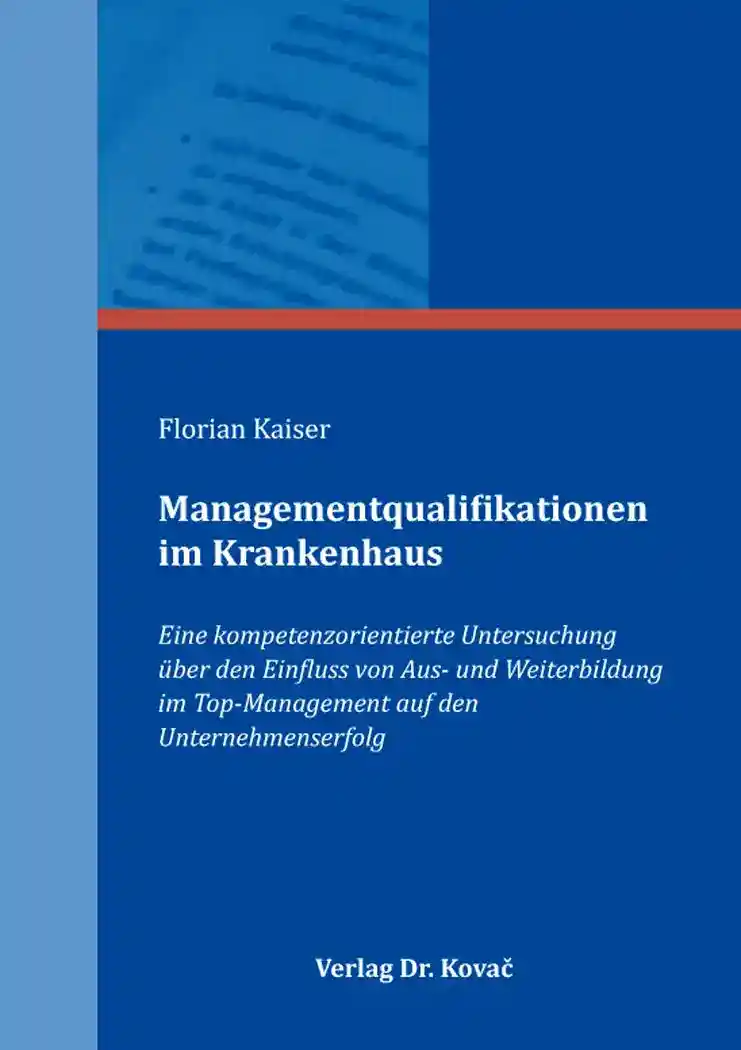Florian KaiserManagementqualifikationen im Krankenhaus
Eine kompetenzorientierte Untersuchung über den Einfluss von Aus- und Weiterbildung im Top-Management auf den Unternehmenserfolg
Gesundheitsmanagement und Medizinökonomie, volume 53
Hamburg 2020, 374 pages
ISBN 978-3-339-11876-9 (print)
ISBN 978-3-339-11877-6 (eBook)
About this book deutschenglish
Management Qualifications in Hospitals – A competency-based study on the influence of education and training in top-management on hospital performance
The aim of the health care industry worldwide is to focus more strongly on quality. Consequently, hospitals will have to undergo an even stronger change in medical quality and patient value. A hospital’s CEO is of central importance in this context, as their position and behavior have a significant influence on the performance of the company.
For this reason, the suggestion is regularly made that CEO positions in hospitals should increasingly be filled by medical professionals. The assumption is that they have a positive influence on quality, for example, due to their clinical expertise and greater trust on the part of the employees. The literature also recommends adding management training to medical education. The manifold expectations are contrasted with little robust evidence.
This paper examines the influence of CEO qualification on hospital performance. It considers physicians and economists and, for the first time, physicians with MBAs. With 370 German clinics, the study contains the largest sample worldwide. Eight quality indicators, financial performance and patient satisfaction were measured. The results were published in Social Science & Medicine in February 2020 under the title „Physician-leaders and hospital performance revisited“.
The results show that none of the three types of qualifications fully meet management tasks. Economists, for example, achieve higher profit margins and better process quality compared to physicians. In contrast, facilities managed by physicians achieve higher patient satisfaction and medical outcomes. A reduction in quality or reputation after receiving an MBA could not be observed. On the other hand, there are improvements in financial performance.
Based on the evidence obtained, several recommendations for the optimization of training and continuing education could be derived. For example, the content of MBAs should not be changed so much as a better link between theory and practice, a more targeted selection of participants and a precise definition of programme outcomes.
Kontakt zum Autor
Keywords
AusbildungFührungskräfteKrankenhausManagementManagementqualifikationenMedizinökonomiePersonalwirtschaftRoutinedatenWeiterbildungIhr Werk im Verlag Dr. Kovač
Möchten Sie Ihre wissenschaftliche Arbeit publizieren? Erfahren Sie mehr über unsere günstigen Konditionen und unseren Service für Autorinnen und Autoren.
